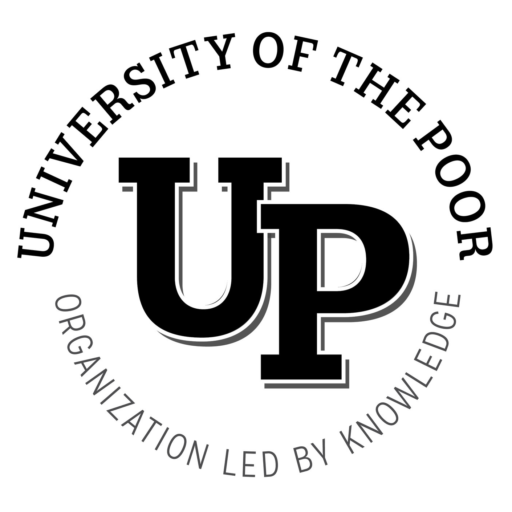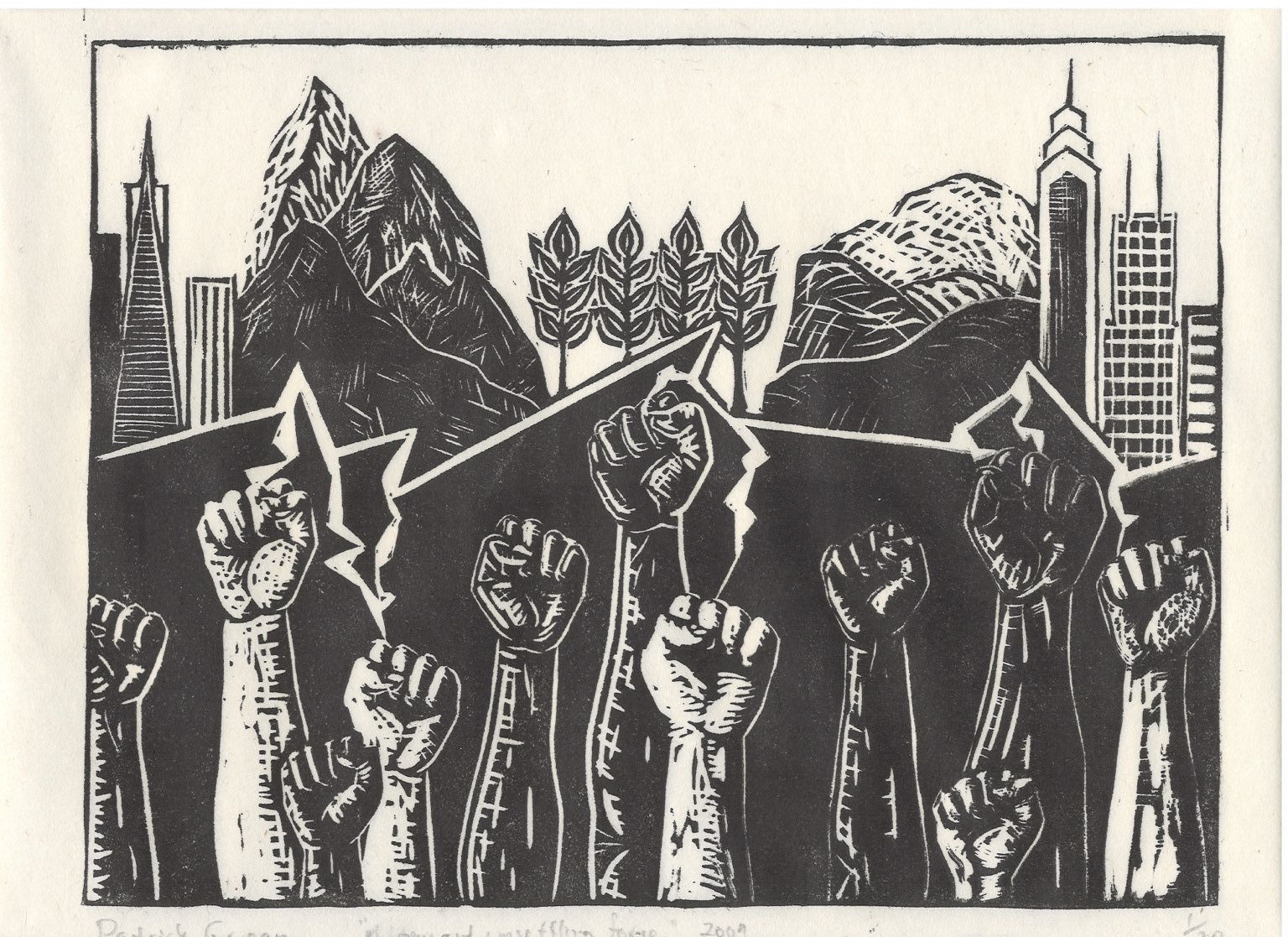by Dan Jones
Our network has looked at what’s happening in the world today and come to the conclusion that a deep transformation of our social life is not just possible, but truly necessary. Without it, the vast majority of people will be left hungry, homeless, sick, held at gunpoint and unprotected from the growing effects of climate change. Without a total reorganization of the world’s economy, war and other kinds of organized violence will continue to spiral and spread.
History teaches us that these kinds of necessary transformations aren’t made by good ideas or good intentions, or by individuals or organizations, but by a big, broad movement of a whole class taking action in its own interest. History also teaches us that for a class to make deep changes in how our life together is organized and ordered, it needs political power. It needs control over the state. Today, we have to ask ourselves what class, or classes, or sections of classes need the power of the state in order to make necessary changes to how our society is organized: To put human life, not profit, at the center of our collective concern and to give teeth to the idea that everybody is made in the image of God.
To answer that question we have to look at who is in a position where they have to kill this system before it kills them. This is not about who is on the “Left.” It’s not about who is being attracted by the organizations, programs and policies being put forward by self-identified socialists (“democratic” or “revolutionary”), or who seems like they might be the easiest to organize. It’s not even about who seems like they have the most leverage in the economy. We have to ask ourselves what class is already in a life-and-death struggle against this system, whether or not they want to be.
Our answer today is the poor. This is the section of society who are being pushed more and more out of the workplace and off of the welfare rolls. It’s the unemployed, temporarily employed, low-waged, informal and illegal sector workers left without any consistent or legal means to secure the basic necessities of life. And the most important ally of the poor in their drive to reorganize society is the broader class of the dispossessed – all those excluded from the ownership and control of capital, who have to work to survive, even if right now they’ve got a steady paycheck, a roof over their heads and food in their bellies. This is because even those people are just one crisis away from joining the ranks of the poor, and there is a lot of crisis on the horizon.
Who can lead the fight for fundamental change, which will require real political power? We have to get into this question in order to make heads or tails of the meaning we place on the slogan of “political independence.”
First, because we have to ask ourselves whose independence we’re fighting for. We aren’t fighting for the abstract independence of the “Left” from the “Center.” We’re fighting for political independence of the dispossessed generally, and the poor in particular as its leading section. Our main concern is the political independence of this class. We shouldn’t get so wrapped up in the questions of the appearance of political (or the formal) independence of particular organizations or individuals that we forget that the point, at the end of the day, is to fight for the political independence of the poor and dispossessed as a whole.
Second, we’re not talking about a general or abstract concept of “independence,” but about political independence in particular. This kind of independence isn’t about words; it’s about having an impact on events. For us, it means working to ensure that the outcomes of struggles today reflect the interests of the poor and dispossessed. Political independence doesn’t mean being right, or being formally/organizationally independent, or talking about being politically independent, or refusing temporary alliances and compromises. It means our class having an independent impact on the outcome of political struggle.
In the end, political independence for the poor and dispossessed means that class’ ability to fight for independent control over state power. It means making it so that the reality of life-and-death struggle between big capital and the poor, which plays out in ways large and small every day, is able to find conscious, political expression as the struggle of the poor to overthrow the power of capital. It means cultivating, step-by-step, power for poor people.
Calling for the political independence of the poor and dispossessed implies that right now there’s a situation of political dependence that has to be broken up. The slogan raises the question, “independent from whom or from what?” Fighting for the political independence of the poor and dispossessed means fighting against the active, ongoing work of all the sections of the ruling class to direct and use the struggles of the poor for their own political purposes. The political leadership of the ruling class over the poor and dispossessed, including through the two-party system, has to be pushed aside.
But that can’t happen just through slogans, conversations, articles, social media posts, or classes. Political independence for the poor can only develop if there is a trained and united group of leaders that can accompany and lead them through their varied struggles. These leaders have to help them identify their own interests and program, as a whole class, and fight together to actually fulfill it.
That means turning survival struggles of the poor into fighting organizations of the poor, rooted in their pressing needs and demands. And it means linking these life-and-death struggles to each other, and to the larger fight for the political power to abolish the structures that create poverty and private wealth. That binding together of struggles, and the political education of the poor, is something that people have to live for themselves. The poor and dispossessed can only build political unity and political independence in practice: in the streets, at the ballot box, and at the legislatures.
Once we’re able to define the path to fundamental change, which can only run through the political independence of the poor and dispossessed, the question for our network is how, under current and changing conditions, to get and keep our class moving in that direction despite every roadblock, twist, turn, and fork in the road.
We should make as much use as we can of the lessons of history. What are the best examples of political independence of a revolutionary class in U.S. and world history? How did those classes develop and exercise political independence? What stages of development did they go through in consolidating their political independence? What kind of compromises did their leaders have to make along the way? What are the necessary ingredients and aspects of that process? What are the forms it takes? How did they manage to combine scattered, separate struggles for immediate demands into a determined and politically united struggle for real power? The starting point of the University of the Poor is that no class can take power without a united group of leaders. Now we have to answer the practical questions of how we actually identify and develop the kind of leaders we need today, and what their unity requires and means in practice.
To give life to the slogan of political independence for the poor and dispossessed, we also have to sharpen our analysis of the current developments in U.S. politics. What are the splits, disagreements and feuds in the ruling class today? Political independence isn’t just about not getting used by these divisions, but actively using them to the political advantage of the poor and dispossessed. What opportunities exist along those lines today?
No class in U.S. history has ever been able to unite itself and express its independent interests without making use of the electoral arena. At the same time, the electoral arena has been one of the main ways the capitalist class has split up any potentially revolutionary movement and brought it under its control. Under the current conditions, how can the political independence of the poor and dispossessed be built and fought for through elections? What forms of participation in the electoral and lawmaking process give the greatest possibility of expressing and developing the political unity and consciousness of the poor and dispossessed? How do we make sure that our engagement in elections allows the poor and dispossessed to test its strength, train and prepare itself for the decisive battles ahead, and put the mark of its class interest on events?
Lastly, the movement toward political independence for the poor and dispossessed in this country has to be a movement for its unity across lines of division and difference in general, and racial lines especially. The poor can’t take action together in their own interest if one section is joining the ruling class to attack another section. This unity has been opposed by those in power everywhere and at all times in U.S. history, and has always faced its greatest opposition in the U.S. South and particularly in the Black Belt. The Black Belt refers to the dark, fertile soil of the Deep South where capitalist plantation slavery was developed in the U.S. Since that period in the 1800s, political control of the whole country by the ruling class has depended on controlling the South through divide-and-conquer racial politics and the ideology of all-white, all-class unity.
The central battleground for the political independence of our class is still in the South. At the same time, growing sections of the ruling class, particularly those looking for a reformist path out of the current crisis, are preparing a renewed assault on the “Solid South.” They want to end the near-total control of the South by the Republican Party, which is the major obstacle to their program of reform and temporary concessions. To do this they are going to put more attention, energy and money into winning over larger sections of the middle in the South and ending voter suppression measures. What can the poor and dispossessed win, what steps toward political independence can we take, given the shifting and intensifying battle for political control in the South? How can we link the fight for democratic rights to the broader fight for power for poor people?
By asking these kinds of questions, we are taking the first steps. Political independence, which is the ability to act for ourselves, also demands the ability to think for ourselves. That means we have the responsibility to answer these kinds of questions as well as ask them. Revolutionaries of the past can’t answer them for us but can help light the way. Every committee and collective of the University of the Poor should be oriented around the task of bringing leaders to a deeper unity around these and related fundamental questions, and helping us to answer them together in practice.


[…] Original in English […]